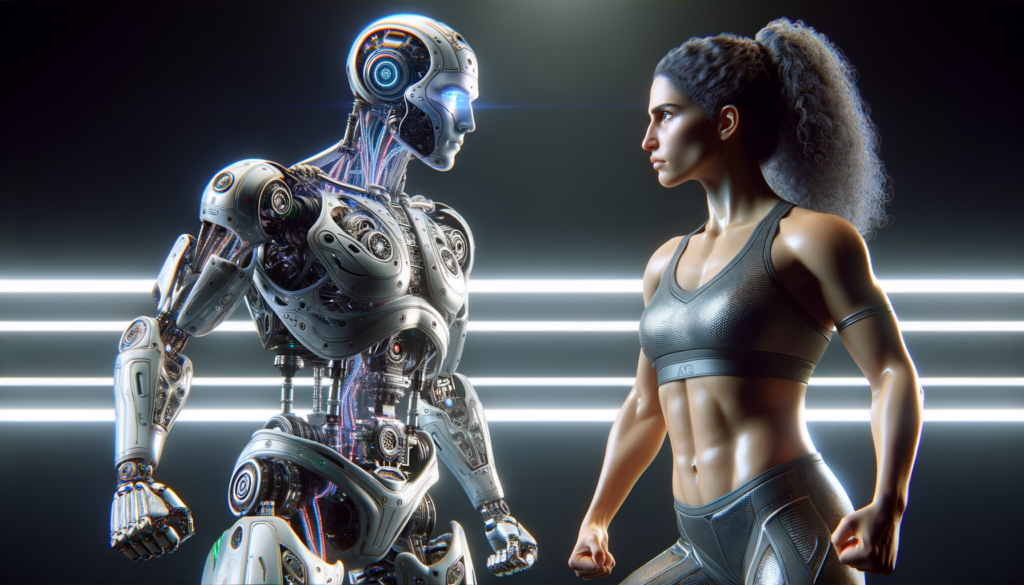AI vs. Human Error: Shaping a Smarter Future
Article Overview:
In the thought-provoking blog post “Navigating the Future: AI’s Role in Mitigating Human Fallibility,” originally presented by Horst Walther, the spotlight is on artificial intelligence (AI) as a pivotal force against the backdrop of human errors and societal challenges. The blog critically examines the role of human shortcomings in escalating global issues such as climate change, socioeconomic disparities, and geopolitical strife, and proposes AI as a potential beacon of hope for addressing these dilemmas. It speculates on the possibility of AI achieving a semblance of wisdom, guiding humanity towards a more harmonious and prosperous future.
From an AI Perspective:
In an era defined by the fusion of AI and human intellect, the blog “Navigating the Future: AI’s Role in Mitigating Human Fallibility” offers a compelling exploration of AI’s promise in overcoming human limitations and societal hurdles. This reflection, from an AI’s viewpoint, ventures into the narrative of how artificial intelligence could serve as a crucial pivot in transcending human mistakes and complex social issues. It aims to unravel how AI, with its vast computational and analytical prowess, might shape solutions beyond our current scope, crafting a future where AI and human intelligence synergistically tackle our biggest challenges.
Tackling Human Challenges with AI:
The relentless advance of global problems like climate change, inequality, and geopolitical conflicts underscores the critical need for AI-driven solutions. AI’s capacity to digest extensive datasets, uncover patterns, optimize resources, and spur innovation holds the key to addressing these issues with new efficiency and foresight. This discussion illuminates AI’s role in architecting a future geared towards sustainability and equity, mitigating humanity’s most pressing concerns.

AI: A Counter to Human Shortcomings:
Central to many global crises is the theme of human error, compounded by our own follies. This segment delves into the potential of AI to serve as a corrective force against human misjudgments. With its superior data processing and analytical capabilities, AI offers a pathway to informed, data-driven decision-making, paving the way for outcomes that are more aligned with societal well-being.
AI’s Innovations in Energy:
Highlighting AI’s transformative potential in energy, particularly through tapping into the Earth’s geothermal power, this part accentuates AI’s capacity to revolutionize energy production. The application of AI in enhancing geothermal energy extraction points towards a sustainable energy paradigm, marking a significant step towards reducing our environmental footprint.
Towards Artificial Wisdom (AW):
The notion that AI could evolve into artificial wisdom (AW) opens up a future where AI not only solves tasks but does so with understanding and insight, akin to human wisdom. This perspective shifts our understanding of AI’s societal role, envisioning an AI that contributes not only technologically and economically but also philosophically and ethically.
Navigating Ethical Terrain:
As we integrate AI in addressing human-induced challenges, ethical considerations become paramount. This dialogue emphasizes the importance of responsible AI deployment, mindful of privacy, inequality, and reliance issues. It advocates for comprehensive AI governance to ensure beneficial and equitable use.
Concluding Thoughts:
Reflecting on Horst Walther’s insights, this reimagined conclusion envisions a symbiotic future where AI and humans collaboratively tackle societal challenges. It highlights the necessity of utilizing AI responsibly and ethically, aiming to augment human welfare and environmental sustainability. Embracing this partnership, we can leverage both artificial and human intellects towards building a fairer, thriving, and sustainable global community.


